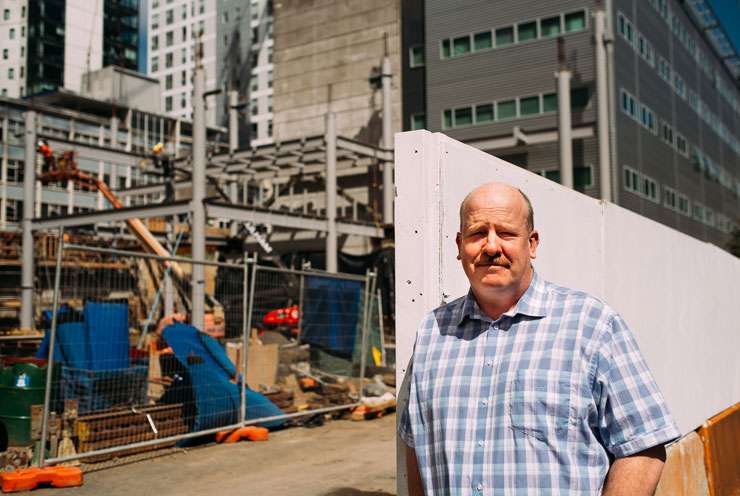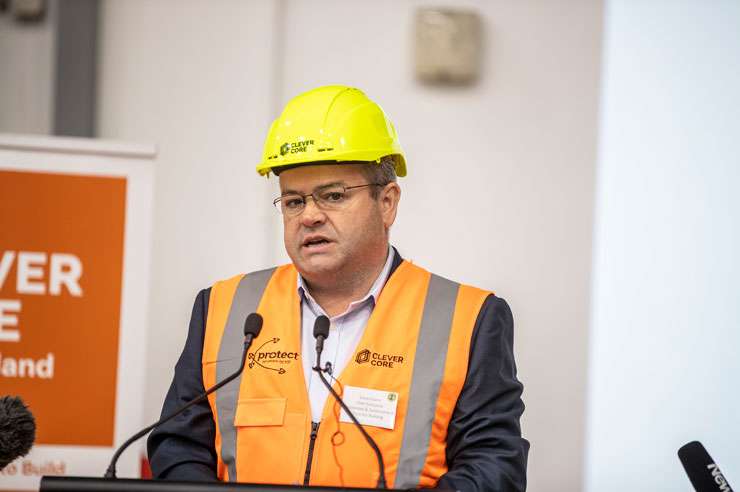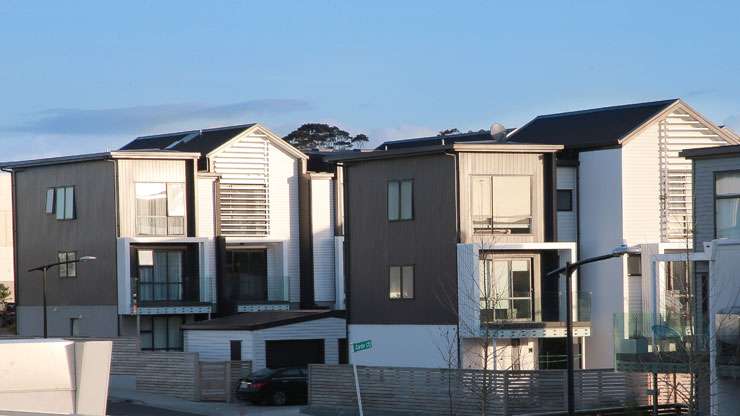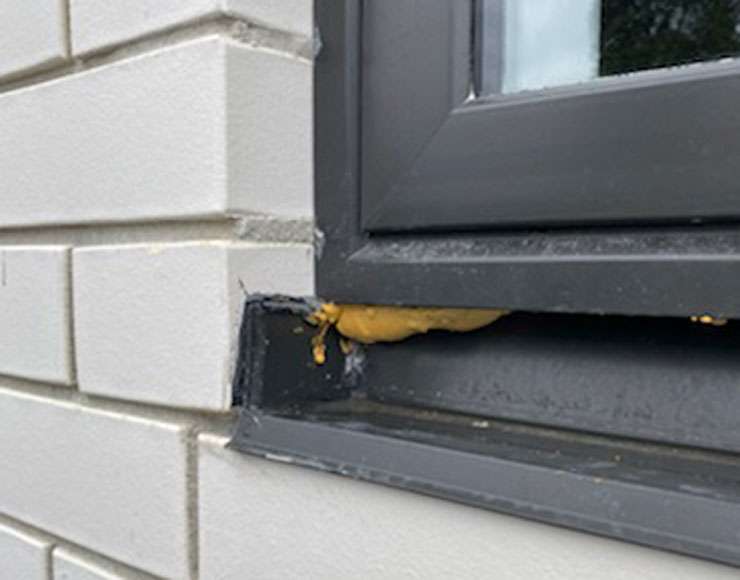First-time developers are cutting corners on new homes in Auckland, raising fears of a new leaky homes-type disaster in the city.
Industry experts warn that “cowboys” in the trade are using inferior materials and breaking building codes in order to maximise profits.
They say Auckland’s new homes surge is under pressure from sharp increases in the cost of labour and building materials and delays caused by the Covid-19 lockdown, and warn that the “perfect storm” could lead to a rise in shoddily-built homes from amateur builders and developers.
The worry is that in the current hot market, desperate buyers are snapping up homes that don’t even have a Code of Compliance Certificate.
Start your property search
Nick Goodall, head of research at property data analysts CoreLogic, said price pressures in the market could lead to developers choosing to use inferior materials.
“That’s leaky buildings phase two,” Goodall said, referring to the multi-billion-dollar construction scandal that resulted in thousands of sub-standard homes being built in Auckland between 1988 and the mid-2000s.
“It’s obviously important that we have the right checks and balances from the councils doing the inspections to make sure everything is up to standard.”
John Tookey, professor in construction management at AUT, said that while “big guys” were doing it right, some smaller developers were ignoring the proper processes.
He said that changes to the Auckland Unitary Plan had resulted in an explosion of medium-density builds on suburban sections. The last 12 months has seen a sharp uptick in sales of properties with development potential in Auckland, with developers frequently paying millions of dollars over CV.

Professor John Tookey: “With some [new builds] it’s a case of get in, get out, get paid.” Photo / New Zealand Herald
“You’ve got cowboy builders or cowboy developers who are grabbing hold of anything that’s got a vague amount of location location location and taking advantage of the fact that it happens to have a large section,” Tookey said.
He said the quality of the builds in New Zealand was a mixed bag. “With some [new builds] it’s a case of get in, get out, get paid. Those builders tend to build to the Building Code, which is the minimum legally acceptable standard. It’s not high compared to other OECD countries.
“There are all these building companies that have sprung up and build these homes. Who is actually on site building them? Are they qualified people?
“We’ve seen that happen down in Canterbury after the earthquakes. The building companies get so thinly spread because they’re so busy building that their qualified people aren’t necessarily on site, supervising as they ought to be.”

Fletcher Residential CEO Steve Evans says builders who break the rules should be penalised. Photo / New Zealand Herald
It’s a sentiment shared by Steve Evans, CEO of New Zealand’s biggest house-building company, Fletcher Residential, who said the consenting process in Auckland was not the problem – fragmentation in the industry was. “People say councils are too slow [but] the response you typically get from the council is directly aligned with the quality of the documentation you provide to council, and the quality of the build,” he said.
“There are stories of small builders relying on Auckland Council to do their quality control for them. They go through four or five inspections of an element of a house because they don’t get the first one right. You can’t blame council for it, you blame the builders.”
Evans said the proliferation of small-time developers was a risk. “One of the issues this industry has is that barriers to entry are so small you can finish your carpentry apprenticeship and effectively create a building company. Many big builders are franchises [and] don’t have that consistency that we have.
“A person can build a house, fold a business and start a new one tomorrow, and it’s inevitably going to be the council that’s responsible for the repair of that house. Councils are the gatekeepers of quality and they take that role seriously.”
He urged councils not to give into pressures to rush consents. “The council should not accept poor quality, and in my view it should penalise those that aren’t delivering that quality.”
Real estate agent and former property developer Paul Lochore said that the unitary plan had opened the floodgates to small developers, many of whom were sourcing finance from overseas and importing their own building materials.
“We see the odd little mum and developers around. But frankly they’re pulling their hair because they can’t get materials. They can’t get finance.”

The master-planned community at Auckland’s Hobsonville Point was done well, but there are fears smaller developments aren't up to scratch. Photo / New Zealand Herald
He said the unitary plan had allowed developers to build rabbit warrens with little amenity for quality lifestyle and no outdoor areas for children to play. “The quality of the building is shocking,” he said.
John Gray, president of the Home Owners and Buyers Association of New Zealand, said that while the Building Act and Building Code had tightened the rules since the leaky buildings disaster, cowboys were still operating.
He cited a recent example of a sub-standard property that was being brought to auction during lockdown.
“The young couple [who had contacted us] hadn’t been able to inspect the property but were able to take some photographs of the exterior. The photographs horrified me,” Gray said.
“The metal cladding had been poorly installed. For example, a downpipe bracket had been screwed through the cladding and onto the baseboard, closing the cavity.”
The photos showed another issue where an entire section of cladding had been attached so that there was no cavity behind it. “There was also a very large gaping gap below one of the windows where they tried to fill it with expanding foam. That was enough for me,” he said.
The house sold for more than $1.8m, despite having no Code Compliance Certificate.
“This is a bit of a worry given that there is no guarantee that the CCC will be issued when the developer anticipates that it will,” Gray said.
“This leads to a risk that if the purchaser was relying on mortgage funding and there is a delay to the sale then the finance approval may expire and then not renewed by the mortgage provider. This obviously puts the purchaser’s deposit at risk.”

“The photographs horrified me.” A defective new-build that recently sold in Auckland. Photo / Supplied
Gray called for greater controls on the quality of building materials being used in new home construction. He claimed that many small-time importers were simply bringing in the materials they needed in a container and that plenty of builders were buying substandard products online.
It is an issue that concerns the government and its Building (Building Products and Methods, Modular Components, and Other Matters) Amendment Bill received royal assent in June. The Ministry of Business, Innovation and Employment (MBIE) is currently working on the regulations that accompany the new law.
A BRANZ review of building quality issues in 2018 found that building defects are not uncommon in New Zealand. “Building-quality issues are not uncommon in New Zealand or in other jurisdictions, and a range of factors result in defects. The most common causes are poor workmanship, build error, material faults and failures, poor coordination between trades, poor design, or procedural errors.
“These errors occur within the context of a fragmented construction industry, unique production processes, complex products, a dynamic market, a lack of information flow between members of the industry, and a lack of product standardisation,” the report noted.
In the 24 months to June 2021, the number of consents issued for new residential buildings in New Zealand peaked at just over 80,000.
The bulk of new dwellings consents are for Auckland. The city’s tally for the 12 months to June 2021 – 19,036 – was up almost 30% on the same period the year before.
In Auckland, there has been a sharp increase in building consents for apartments and townhouses since 2014, with the number of townhouse consents in the city close to overtaking those for standalone houses in the last 24 months.










